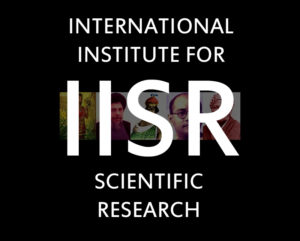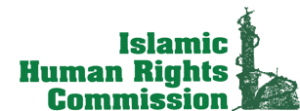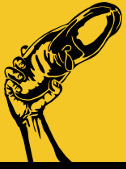Membership
Decolonial International Network (DIN) is organized per country. Members are organizations and institutions that work on decolonizing society on different levels, such as knowledge production and distribution, advocacy and activism.
DIN stimulates organization in a country to join forces with other organizations and institutions in their country, share ideas and experiences, develop relations, built join projects and campaigns and create a space and atmosphere of sisterhood and brotherhood.
If your organization of institution wants to join DIN, send an email to DIN coordinator Sandew Hira: sandew.hira@iisr.nl. Hira will start the conversation on how to develop relations with other members of DIN.
Belgium: Bruxelles Panthères
 Bruxelles Panthères fights against all forms of imperial domination, colonial and Zionist who founded the white supremacist internationally. We are working to build the political community of all those and all those who refuse the concealment of domination and oppression inscribed in the history and state institutions of Western countries. We affirm that no future is possible if we are not inspired by past and current resistance.
Bruxelles Panthères fights against all forms of imperial domination, colonial and Zionist who founded the white supremacist internationally. We are working to build the political community of all those and all those who refuse the concealment of domination and oppression inscribed in the history and state institutions of Western countries. We affirm that no future is possible if we are not inspired by past and current resistance.
We must teach the objective of history so that new generations do not reproduce past crimes. Learning from the past to build a better future.
Our main objective is to converge within the same racist and decolonial dynamic, all resistance areas that will give the inhabitants of the popular districts of Brussels.
“The panther was chosen as a symbol because it is a black and beautiful animal that does not attack but denies ferociously.” Black-Panther Liberation School, December 20 1969, San Fransico, California
Website: https://bruxelles-panthere.thefreecat.org/
Holland: International Institute for Scientific Research
 The International Institute for Scientific Research (IISR) in The Hague, Holland, is an institute that is devoted to exploring the colonizing and decolonizing of the mind.
The International Institute for Scientific Research (IISR) in The Hague, Holland, is an institute that is devoted to exploring the colonizing and decolonizing of the mind.
IISR wants to build an academic infrastructure for researchers in and outside the academia to conduct and promote scientific research from the perspective of decolonizing the mind. Researchers outside the academia are often very critical of the research in the academia but lack the infrastructure to develop their projects. IISR wants to build such an infrastructure especially for these researchers.
IISR publishes a newsletter, organizes conferences, workshops and seminars. IISR has an arrangement with Amrit Publishers to publish a series titled Decolonizing The Mind edited by Sandew Hira (director of IISR) and Stephen Small (professor of the University of California Berkeley).
Website: http://www.iisr.nl/en/home/
Spain: Center of Study and Investigation for Decolonial Dialogues
 Center of Study and Investigation for Decolonial Dialogues is a non-profit and non-governmental organization promoting research, knowledge-making, education (through seminars, workshops, exhibits, round-tables discussions, publications and video-making) and public policy to invent and work towards non-competitive horizons of life, of socio-economic organization and international relations. The Center of Study and Investigation for Decolonial Dialogues collaborates in the organizing and hosting of four independent summer programs in Amsterdam, Barcelona, Granada and Mexico City.
Center of Study and Investigation for Decolonial Dialogues is a non-profit and non-governmental organization promoting research, knowledge-making, education (through seminars, workshops, exhibits, round-tables discussions, publications and video-making) and public policy to invent and work towards non-competitive horizons of life, of socio-economic organization and international relations. The Center of Study and Investigation for Decolonial Dialogues collaborates in the organizing and hosting of four independent summer programs in Amsterdam, Barcelona, Granada and Mexico City.
Website: http://www.dialogoglobal.com/
United Kingdom: Islamic Human Rights Commission
 The Islamic Human Rights Commission (IHRC) was set up in 1997. IHRC is an independent, not-for-profit, campaign, research and advocacy organization based in London, UK. She have consultative status with the United Nations Economic and Social Council.
The Islamic Human Rights Commission (IHRC) was set up in 1997. IHRC is an independent, not-for-profit, campaign, research and advocacy organization based in London, UK. She have consultative status with the United Nations Economic and Social Council.
IHRC work with different organizations from Muslim and non-Muslim backgrounds, to campaign for justice for all peoples regardless of their racial, confessional or political background.
The research work of IHRC includes submitting reports to governments and international organizations, writing articles, monitoring the media, cataloguing war crimes and producing research papers on hate crime, discrimination, the nature of human rights and so on.
Her work at the UN brings together different aspects from all of IHRC’s work.
The campaigns section produces alerts and works on short and long term campaigns, often including organizing vigils, letter writing campaigns, exhibitions etc.
Her advocacy involves referring and taking on discrimination cases and cases that she can offer real assistance on.
Website: http://www.ihrc.org.uk/
[:es]
Afiliación
La Red Decolonial Internacional (DIN) está organizada por país. Los miembros son organizaciones e instituciones que trabajan en la descolonización de la sociedad en diferentes niveles, como la producción y distribución del conocimiento, la promoción y el activismo.
DIN estimula la organización en un país para unirse a otras organizaciones e instituciones de su país, compartir ideas y experiencias, desarrollar relaciones, construir proyectos y campañas unidas, así como crear un espacio y una atmósfera de hermandad y fraternidad.
Si su organización o institución desea unirse a DIN, envíe un correo electrónico al coordinador de DIN Sandew Hira: sandew.hira@iisr.nl. Hira iniciará la conversación sobre cómo desarrollar relaciones con otros miembros de DIN.
Bélgica: Bruxelles Panthères
Bruxelles Panthères lucha contra todas las formas de dominación imperial, colonial y sionista que fundaron la supremacía blanca a nivel internacional. Estamos trabajando para construir la comunidad política de todos aquellos que rechazan el ocultamiento de la dominación y la opresión inscritos en la historia y las instituciones estatales de los países occidentales. Afirmamos que ningún futuro es posible si no estamos inspirados por la resistencia pasada y actual.
Debemos enseñar el objetivo de la historia para que las nuevas generaciones no reproduzcan crímenes pasados. Aprender del pasado para construir un futuro mejor.
Nuestro objetivo principal es convergir dentro de la misma dinámica racista y decolonial, todas las áreas de resistencia que darán a los habitantes de los barrios populares de Bruselas.
“La pantera fue escogida como un símbolo porque es un animal negro y hermoso que no ataca pero niega ferozmente”. Escuela de Liberación de las Panteras Negras, 20 de diciembre de 1969, San Francisco, California.
Website: https://bruxelles-panthere.thefreecat.org/
Francia : Partido de los Indígenas de la República
El Partido de los Indígenas de la República fue constituido en el Congreso PIR Malcolm X, que se celebró los días 27 y 28 de febrero de 2010 en París, Francia.
El PIR es un espacio de organización autónoma de todos aquellos que quieren participar en la lucha contra las desigualdades raciales que limitan a los negros, árabes y musulmanes a un estatus similar al de los nativos de las antiguas colonias: marginación política, estigma de nuestras culturas y la discriminación en el empleo, la vivienda, la escuela, la inmigración represiva y los residentes del barrio, etc. Más generalmente, la lucha del PIR contra todas las formas de dominación imperial, colonial y sionista que fundaron la supremacía blanca internacionalmente.
Así es como honran a sus padres inmigrantes ya nuestros antepasados colonizados o deportados que han luchado tan duro para su liberación.
Website: http://indigenes-republique.fr/
Holanda: Instituto Internacional de Investigaciones Científicas
El Instituto Internacional de Investigaciones Científicas (IISR) en La Haya, Holanda, es un instituto dedicado a explorar la colonización y la descolonización de la mente.
IISR quiere construir una infraestructura académica para investigadores dentro y fuera de la academia para conducir y promover la investigación científica desde la perspectiva de la descolonización de la mente. Los investigadores fuera de la academia son a menudo muy críticos de la investigación en la academia pero carecen de la infraestructura para desarrollar sus proyectos. IISR quiere construir tal infraestructura especialmente para estos investigadores.
IISR publica un boletín informativo, organiza conferencias, talleres y seminarios. IISR tiene un acuerdo con Amrit Publishers para publicar una serie titulada Decolonizing The Mind editado por Sandew Hira (director de IISR) y Stephen Small (profesor de la Universidad de California en Berkeley).
Website: http://www.iisr.nl/es/home/
España: Centro de Estudio e Investigación de Diálogos Decoloniales
Centro de Estudio e Investigación para los Diálogos Decoloniales es una organización sin fines de lucro y no gubernamental que promueve la investigación, el conocimiento y la educación (a través de seminarios, talleres, exposiciones, mesas redondas, publicaciones y videos) y trabaja hacia horizontes no competitivos de vida, de organización socioeconómica y las relaciones internacionales. El Centro de Estudio e Investigación de Diálogos Decoloniales colabora en la organización y acogida de cuatro programas de verano independientes en Ámsterdam, Barcelona, Granada y la Ciudad de México.
Website: http://www.dialogoglobal.com/
Reino Unido: Comisión Islámica de Derechos Humanos
La Comisión Islámica de Derechos Humanos (IHRC) fue creada en 1997. La IHRC es una organización independiente, sin fines de lucro, de investigación y defensa basada en Londres, Reino Unido. Tiene status consultivo ante el Consejo Económico y Social de las Naciones Unidas.
IHRC trabaja con diferentes organizaciones de origen musulmán y no musulmán, para hacer campaña por la justicia para todos los pueblos, independientemente de su origen racial, confesional o político.
El trabajo de investigación de la IHRC incluye la presentación de informes a gobiernos y organizaciones internacionales, la redacción de artículos, el monitoreo de los medios de comunicación, la catalogación de crímenes de guerra y la producción de documentos de investigación sobre crimen de odio, discriminación, naturaleza de los derechos humanos, etc. Su trabajo en la ONU reúne diferentes aspectos de toda la labor de la Comisión.
La sección de campañas produce alertas y trabaja en campañas a corto y largo plazo, incluyendo a menudo la organización de vigilias, campañas de escritura de cartas, exposiciones, etc.
Su abogacía consiste en referir y tomar casos de discriminación y aquellos en los que pueda ofrecer asistencia real.
Website: http://www.ihrc.org.uk/

